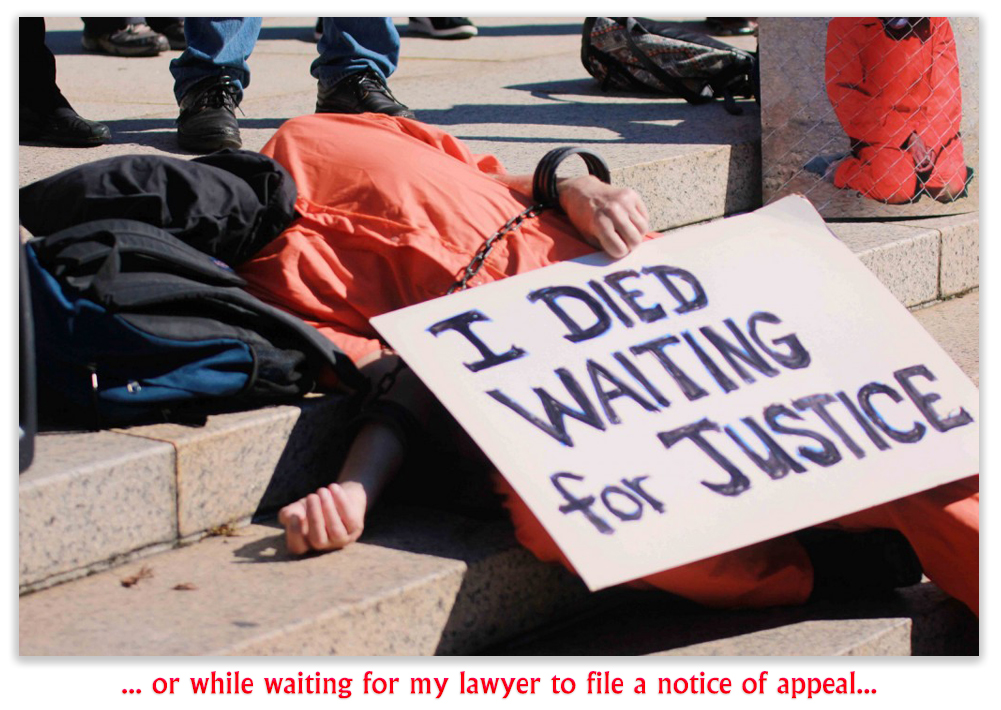We post news and comment on federal criminal justice issues, focused primarily on trial and post-conviction matters, legislative initiatives, and sentencing issues.

SUPREME COURT SEEMS SKEPTICAL OF ATTORNEY RIGHT NOT TO APPEAL; AGREES TO HEAR PAIR OF SUPERVISED RELEASE ISSUES
While it can be dangerous to predict an outcome from the justice’s comments at oral argument, Supreme Court observers are predicting that it seems more likely than not that the Court will rule that a lawyer who unilaterally decides to disregard his or her client’s instruction to appeal provides ineffective assistance of counsel, even where the client has waived appeal rights.
 Under Strickland v. Washington, in order to establish ineffective assistance of counsel, a petitioner must show the lawyer rendered objectively unreasonable representation, and that there is a reasonable probability that the poor performance caused adversely affected the result of the proceeding. The issues in last week’s Garza v. Idaho case were whether the lawyer rendered deficient performance by refusing to file an appeal, despite his client’s repeated requests and without consulting him, and whether Garza must demonstrate prejudice or whether it is assumed as provided for in the Court’s 2000’s Roe v. Flores-Ortega decision.
Under Strickland v. Washington, in order to establish ineffective assistance of counsel, a petitioner must show the lawyer rendered objectively unreasonable representation, and that there is a reasonable probability that the poor performance caused adversely affected the result of the proceeding. The issues in last week’s Garza v. Idaho case were whether the lawyer rendered deficient performance by refusing to file an appeal, despite his client’s repeated requests and without consulting him, and whether Garza must demonstrate prejudice or whether it is assumed as provided for in the Court’s 2000’s Roe v. Flores-Ortega decision.
Idaho argued there was no prejudice because the state “had already secured the waiver of many, many, many issues, in fact, all of the reasonable issues that could be tried.”
“Well, many but certainly not all,” interjected Chief Justice John Roberts. “They didn’t assure themselves of victory on appeal since there were arguments outside the scope of the agreement, including some that have to be available outside the scope of the agreement,” Roberts explained, alluding to possible claims that the plea and appeal waiver were themselves involuntary.
 In other Supreme Court developments, the Court granted certiorari in Mont v. United States, a 6th Circuit case asking whether a period of supervised release for one offense is tolled under 18 USC 3624(e) during a period of pretrial confinement for a new criminal case, if upon conviction the time is credited toward the defendant’s sentence for the new crime.
In other Supreme Court developments, the Court granted certiorari in Mont v. United States, a 6th Circuit case asking whether a period of supervised release for one offense is tolled under 18 USC 3624(e) during a period of pretrial confinement for a new criminal case, if upon conviction the time is credited toward the defendant’s sentence for the new crime.
A week before, the Court granted certiorari to another supervised release case, United States v. Haymond. Last spring, the 10th Circuit held in that case that 18 USC 3583(k), which requires additional prison time for sex offenders who violate the terms of their supervised release, is unconstitutional, because it takes away the sentencing judge’s discretion and imposes additional punishment on sex offenders based on new conduct for which they had not been convicted beyond a reasonable doubt. The government petitioned for high court review.
SCOTUSblog.com, Argument analysis: Court skeptical that a lawyer may unilaterally countermand client’s instruction to file a criminal appeal (Oct. 31, 2018)
Mont v. United States, Case No. 17-8995 (cert. granted Nov. 2, 2018)
United States v. Haymond, Case No. 17-1672 (cert. granted Oct. 26, 2018)
– Thomas L. Root

